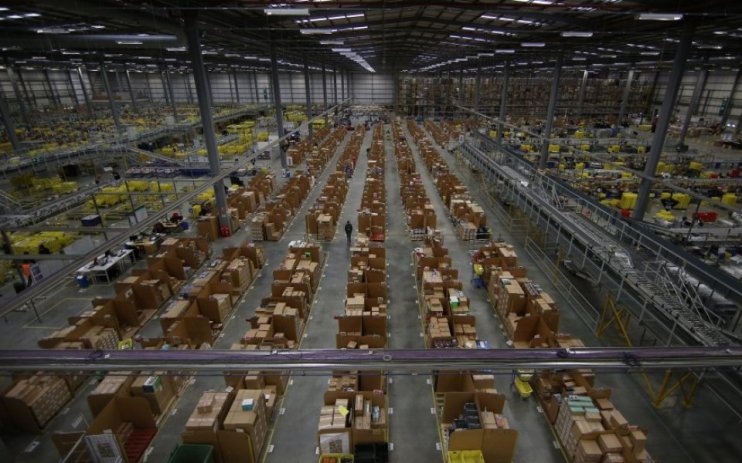Warehouse investment hits record levels as e-commerce fuels boom in demand

Investment into warehousing and logistics hit record levels in the UK last year fuelled by a boom in online retail brought on by the pandemic, new data has revealed.
Over £17bn of deals were completed in 2021 with the final quarter alone attracting as much investment as an average calendar year at £6bn, according to data from commercial real estate firm Cushman & Wakefield.
Around 70m sq ft in warehousing was let or sold, up nearly a third on the previous high of 53m sq ft in 2020 and more than double the average pre-pandemic year.
The boom in warehouse letting was underpinned by skyrocketing demand from e-commerce firms who committed to 20.5 million sq ft in 2021 – 33% of total take-up of logistics space.
Richard Evans, Head of UK Logistics & Industrial at Cushman & Wakefield, said: “2021 was nothing short of an extraordinary year for logistics and industrial space and we expect to see continuing high levels of activity in 2022 as much-needed new stock is brought to market.
“As e-commerce-led demand continues to outstrip supply we are seeing rental levels and land values reach news highs across the UK, especially in London.
Evans welcomed an “increase in speculative development” but warned that more will be needed if supply of warehousing space is to keep up with demand.
The surge in investment figures was driven by an increasing demand for larger lots. Almost 80 deals registered at more than £50 million (of which 43 were single asset), compared to just over 30 in 2020.
The largest single transaction of the year in this category was the £1.7 billion sale and lease back of Asda’s warehouse portfolio to private equity giant Blackstone.
Consultants at specialist supply chain and procurement consultancy Proxima said that investors’ appetite for the sector shows no sign of abating as demand continues to surge and Brexit and pandemic issues restrict distribution.
“Over the course of the pandemic, we’ve seen a shift away from a “just in time” approach as supply chain issues saw manufacturers and retailers continually caught out with little or no availability”, said Neil Jordan, VP at Proxima. “Businesses are now holding more stock to counter this.”
“Layered on top of this, UK businesses are holding more stock due to the added complexity Brexit brings on importing goods and when coupled with economic growth the result is increasing demand for warehousing.”
Jordan said that investment in supply chain infrastructure had also ramped up as logistics firms look to shift to a more automated approach.
